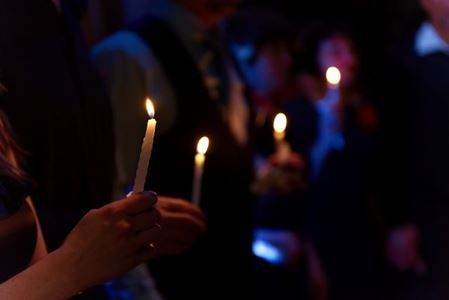Dear colleagues,
I’m struggling to find words to respond to yesterday’s shooting at Robb Elementary School in Uvalde, Texas—yet another senseless act of violence, this one claiming the lives of at least 19 children and two teachers.
The weight of this tragedy is compounded by its timing, just 10 days after the mass killing committed by a white supremacist at a grocery store in Buffalo, New York. All 10 people killed were Black. One day later, members of Taiwanese descent at a church in Laguna Woods, California, were targeted in an attack.
Today is also the two-year anniversary of the murder of George Floyd. Many have been grieving ever since, not only for his death, but for the deep wounds of racial injustice. Against the backdrop of this significant day in history, the feelings in the wake of this tragedy are made even more raw.
As grocery stores, churches, schools—everyday places—are instantly transformed into hate-filled battlefields, we want the School of Medicine to be a place that is safe, diverse, welcoming and supportive of all.
Times like these call us to look out for and take care of each other. We must respect the ways each person processes grief and sadness. Some may choose to rededicate themselves to advocacy and political activism. Some may need to seek professional help to make it through the darkness. Others might just want to be left alone.
If you are grieving or traumatized, please know that you are not struggling alone.
For leaders during this time, it is important for you to engage and check in with members of your teams. It is beneficial for all of us when we acknowledge how we are coping and provide support to one another. Students, staff and faculty are encouraged to speak with their program or department leadership if they need to request time away to address trauma experienced after these events. In addition, I’ve listed some mental health resources that are available below.
We will be offering an opportunity to come together to process and discuss the impact of these events as a community. More information about this virtual forum will be available soon.
In the meantime, let’s join together as one school community—using our words and actions as a scholarly institution to combat hate.
Sincerely,

Jay L. Hess, MD, PhD, MHSA
Executive Vice President for University Clinical Affairs
Dean of the School of Medicine
Indiana University
Need to talk?
For trainees: The Department of Mental Health Services at IU School of Medicine is available to provide mental health and personal counseling services to all students, residents and fellows. There are two ways to access services:
- In an emergency, call 317-278-HELP (4357) 24 hours a day, 7 days a week. A licensed clinical health specialist will provide an assessment and help direct you to appropriate treatment options based on the situation. You may also call on behalf of a trainee if you are a family member, friend or colleague concerned about their well-being. You may call anonymously if desired.
- To request an appointment with the Department of Mental Health Services, send a secure message via their online portal or call 317-278-2383 during normal business hours.
For IU Health employees:
- Indiana University Health Physicians Employee Assistance Program
- IU Health Spiritual Care and Chaplaincy Services, 317-962-8611
For IU Employees:
- IU Employee Assistance Program (EAP) provides 24/7/365 access to licensed mental health counselors via SupportLinc or 888-881- LINC (5462) for IU School of Medicine team members and their households.
For all IU School of Medicine community members:
- National Suicide Prevention Hotline, 800-273-8255, available 24/7
